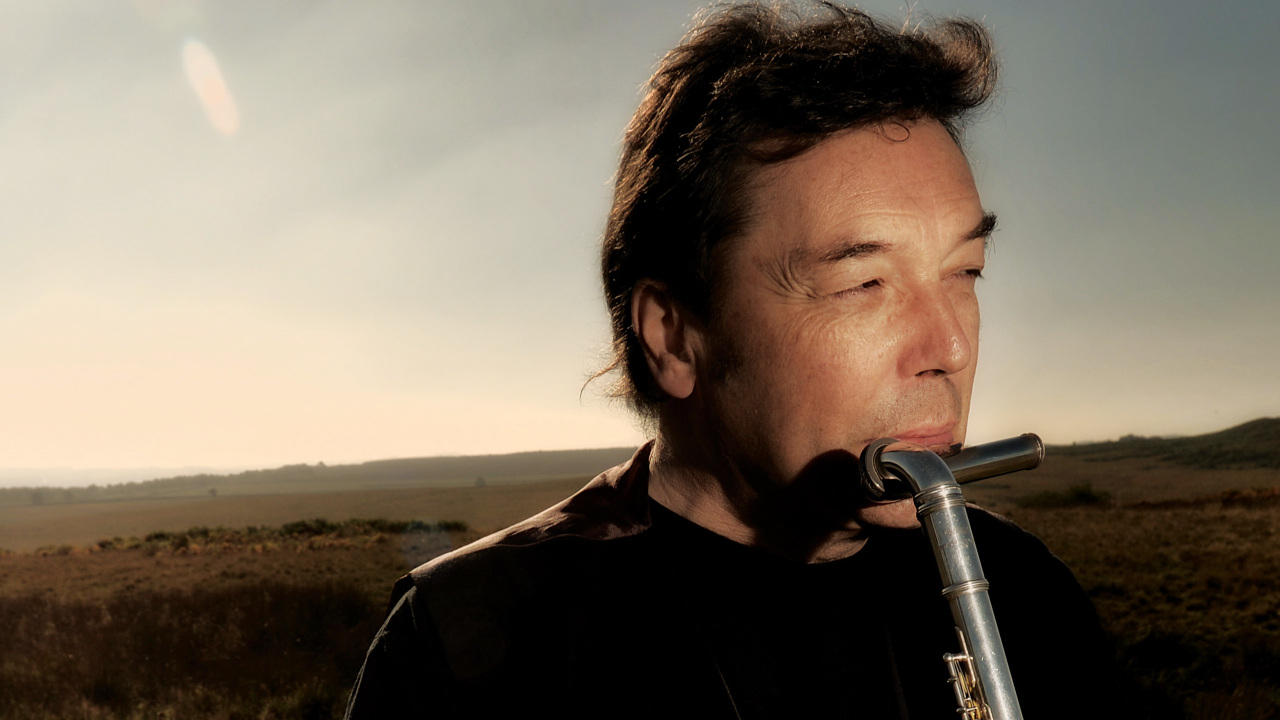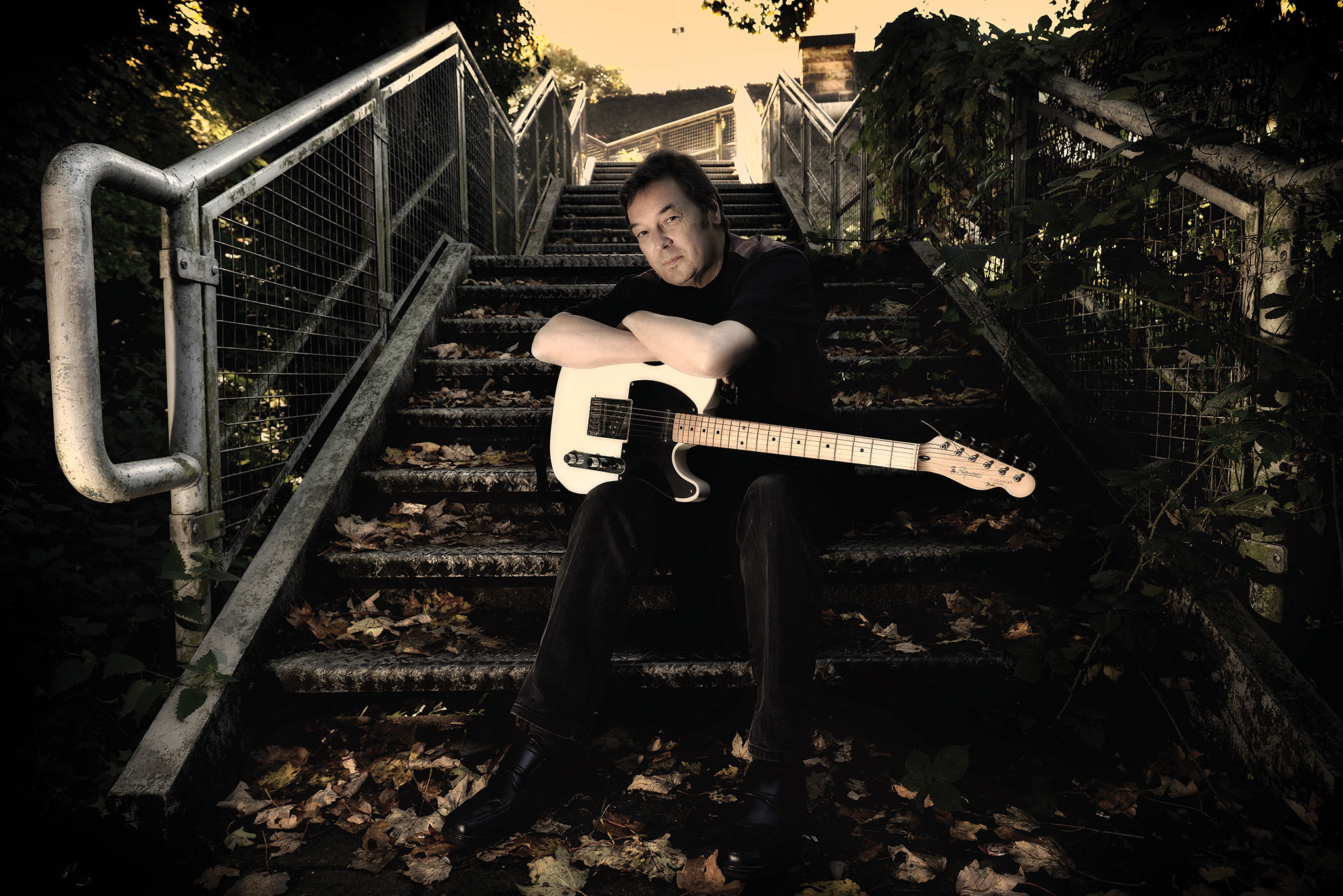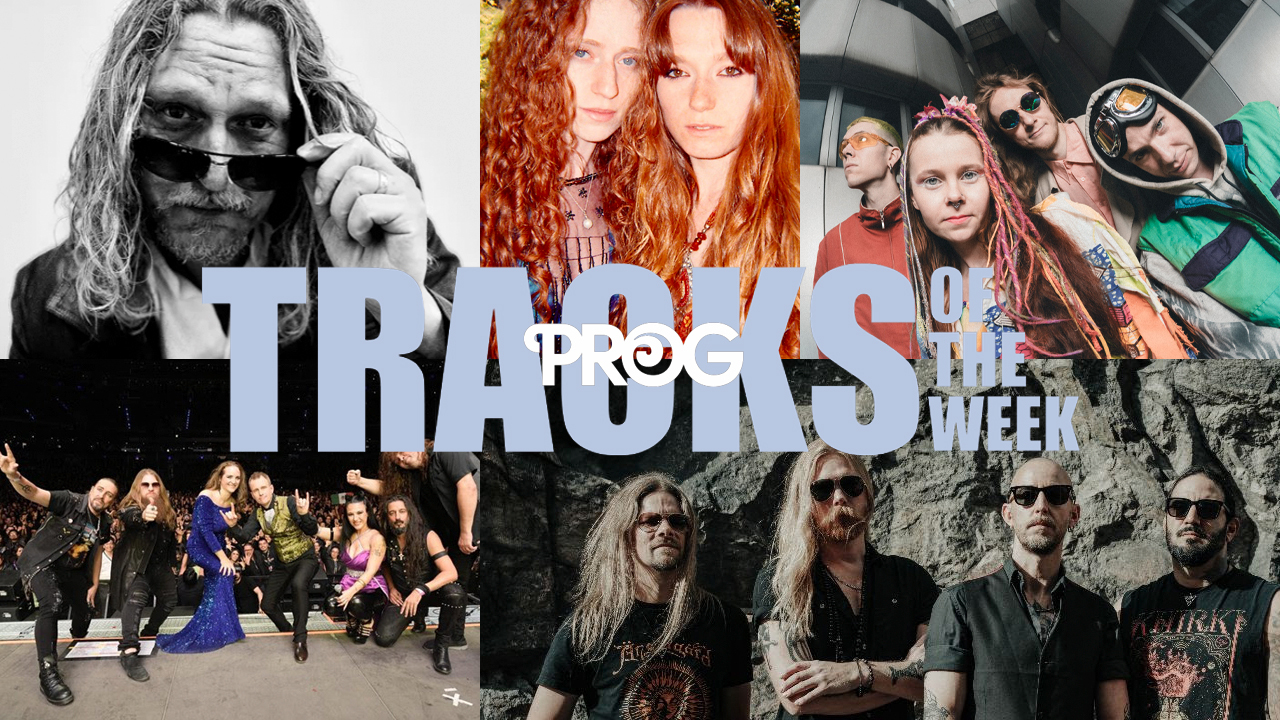Brotherly Love: John Hackett Takes Centre Stage With A New Solo Album
He’s known to many as Steve Hackett’s flute-playing brother, but now John Hackett is gracing Prog’s pages on his own merits. And he's ready to showcase his 'other side' on his latest album.

“This is a change of direction for me,” muses John Hackett. “I suppose most people who know of me think of me as Steve’s younger brother who played the flute with him. Well, I’m not as young or as slim as I was but I’m only playing flute on three tracks on this album, and I’m doing all the vocals. Hence the title, Another Life – it’s showing another side of me. It’s very different, and quite liberating.”
John first took up that flute aged 15. He’d previously learned guitar, swapping solos at home with Steve, but upon hearing Ian McDonald’s work with King Crimson, he chose another path. When Steve left Genesis, John collaborated with him on albums such as Voyage Of The Acolyte and Please Don’t Touch, and featured on Anthony Phillips’ The Geese And The Ghost, while continuing his flute studies. While he’s still a regular on his brother’s albums (playing on Beyond The Shrouded Horizon and Genesis Revisited II), he’s recorded several solo and duo albums, plus a run of releases with ambient relaxation combo Symbiosis. In 2000 he and Steve released the flute-and-guitar album Sketches Of Satie. He’s also played classical concerts internationally (some with The English Flute Quartet and the Westminster Camerata). But in 2005 he released his first rock album, Checking Out Of London, to which Another Life is “a kind of follow-up. But I have much more experience as a singer now.”
It’s showing another side of me. It’s very different, and quite liberating.
The man who was jocularly nicknamed Hackett Minor in Steve’s pre-Genesis band Quiet World is taking a major step out of the background with this album. It’s a collection of songs that range from chunky soft rock to introspective ballads, alternating between a sense of searching and a glow of serenity.
“I hope people enjoy it as an album,” he says. “I tried to make the kind of thing I’d like to listen to. If the first five tracks all sound the same, I tend not to go much further – I lose interest. Hopefully it’s varied, and takes you on a musical journey. And isn’t boring!”
Asked what’s pulled him inexorably back towards rock, he recalls that “most of my life I’ve focused on the flute, playing scales – it takes a lot of hard work and technique to play Mozart. So this feels freer. Songwriting is a fairly new thing for me and I enjoy it very much. I think differently, in terms of melody, when I’m writing. I’m always thinking, ‘Where’s the tune here? What’s leading where?’ Obviously I still care about tones and textures, but the melody is key.”
Old school-friend Nick Clabburn provided the lyrics for Another Life, with John then finding the right musical setting and voice for them. “He sends me the words and I gauge what the mood is, as if it’s a poem. It’s not like I quiz him on what every line means. We gel, as far as our tastes go, so the job’s done in a fairly progressive style. Sometimes Nick writes very strong and dark stuff, but that’s good as far as I’m concerned. It means it’s more edgy than when I attempt to write my own drippy love songs! I’m comfortable singing it, however much punch he’s put in.”
Sign up below to get the latest from Prog, plus exclusive special offers, direct to your inbox!
One wonders how much of a challenge it is, however, to sing someone else’s melancholy lyrics about frustration and dismay. The songs here speak of poison towns that bring you down, ‘air full of desolation’, ‘living in slow motion, I’m the seed that wouldn’t grow’, ‘nothing left to lose’ and a whole lot of darkness, loneliness and rain.
“Well,” ponders John. “That’s the catharsis of lyrics, isn’t it? Melancholy? Feeling like there’s not much worth living for? They’re not uncommon notions. You can trace themes like this all the way back to the blues!”

With its subtle motifs and nagging melodies, Another Life is an album that gradually grows on you, rather than instantly blows you away. For all John’s heritage and connections, is it a prog album as such? “For me it is,” he answers. “There’s a mellotron on there for a start! Nick Magnus, who produced it, used to be in Steve’s band, and worked hard on it with me. I’m not one to be precious about genres, but there are influences audible in the guitar playing… [John also tackles guitars and occasional bass and keyboards.] And there are unexpected influences too, from Tamla Motown to whatever I think any individual track needs. I don’t like to pin things down, I like to bring in whatever feels right. Kazoo? Washboard? Why not?”
There are two guest musicians on the album whom the Genesis fraternity will relish. While this is very much John’s own stepping-out-of-the-shadows opus, brother Steve does play guitar on seven tracks, and harmonica on one. And Anthony Phillips plays 12-string and harpsichord on Satellite (the same cut that sees Steve switching to the mouth organ). How did these link-ups pan out? Was it strange to have the older brother guesting on the younger’s album for a change?
John chuckles. “I suppose there was a touch of role reversal there! But obviously Steve and I get on very well, and he was happy to contribute. He had the right attitude: head down, get on with it, doing a day’s work. Some of the guitar parts I’d already demoed, but of course Steve has such a fabulous sound and such magical phrasing. He’d do his own thing too, improvising around it. As for Anthony, we go back 40 years, to when I did some sessions for The Geese And The Ghost. Mike Rutherford got me involved, and I’d just given up my studies at Cambridge to become a musician, so it meant a lot to me. It really felt like a sign.
“That was our first connection, but we met again a few years ago. I reminded him of a trick he played on the young me back then, which broke the ice. He handed me a flute part for one track that was extraordinarily complicated, a mass of extremes in every difficult combination. ‘This is impossible,’ I said. ‘Sorry, but you’ll have to phone James Galway or somebody.’ He saw the horror on my face, then took the sheet away, admitting that he was just kidding, and handed me the real part. Which, thankfully, I could manage. Did I retaliate with a similar wind-up this time? No, but maybe I should have!
“Satellite was a key track. We’d arranged it but I wasn’t totally happy with my guitars on it. Nick Clabburn, who was very much part of the team, and myself somehow came up with the idea of Steve on harmonica and Anthony on 12-string. And there’s a prog connection too, in that we hit on a picking pattern like the one on Genesis’ Cuckoo Cuccoon – that was a pattern of mine that Steve used there. Like so much music, its best side was discovered by a team effort, by happy collaboration.”
Obviously Steve and I get on very well, and he was happy to contribute. He had the right attitude.
For all the teamwork, it’s still John’s voice out front and centre. He reckons he’s taken a similar approach to singing as he originally did when learning the flute. “Practise, practise, practise! I hope people will notice I’ve improved since the previous album, and be pleasantly surprised. Flute players do exercises; I’ve used that in my singing. Some people just luckily wake up one day with a fantastic range and a beautiful voice, but I’ve approached it like an instrument. I found singing lessons helpful: I was shown how to reach a high note by placing a bottle of water on the floor, then hitting the high note as I bent down to pick it up. Yes, that works! Although you can’t do that on stage…”
He’s putting a band together now, with a view to live shows. He speaks of the boost that technology has given home recording – “making it possible for everybody” – and how his influences as a writer include Genesis (“I would say that – I attended so many concerts and loved them”), The Moody Blues and Joni Mitchell (“such unpredictable fusions of music and words”). If his ambient trip Symbiosis has bled into this album at all, he says, it’d only be through the way it’s emboldened him to improvise.
Another Life closes with a coda of Steve’s echoing slide guitar underscoring some downbeat lyrics, but John insists it should leave us with a positive feeling rather than any sense of alienation. “The chorus of Another Day, Another Night, just prior to that, is the real finale. It’s intended to give off the message that everything’s going to be alright.”
It seems that for John Hackett, it is.
Another Life is out now on Esoteric Antenna. See www.johnhackett.com for more information.
Chris Roberts has written about music, films, and art for innumerable outlets. His new book The Velvet Underground is out April 4. He has also published books on Lou Reed, Elton John, the Gothic arts, Talk Talk, Kate Moss, Scarlett Johansson, Abba, Tom Jones and others. Among his interviewees over the years have been David Bowie, Iggy Pop, Patti Smith, Debbie Harry, Bryan Ferry, Al Green, Tom Waits & Lou Reed. Born in North Wales, he lives in London.

